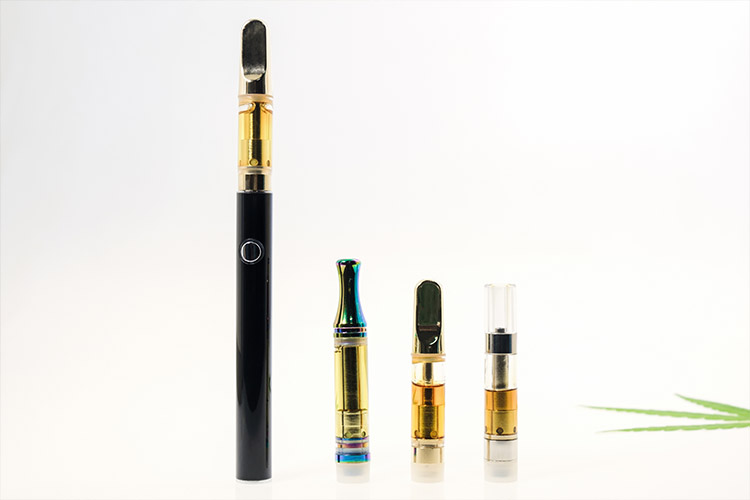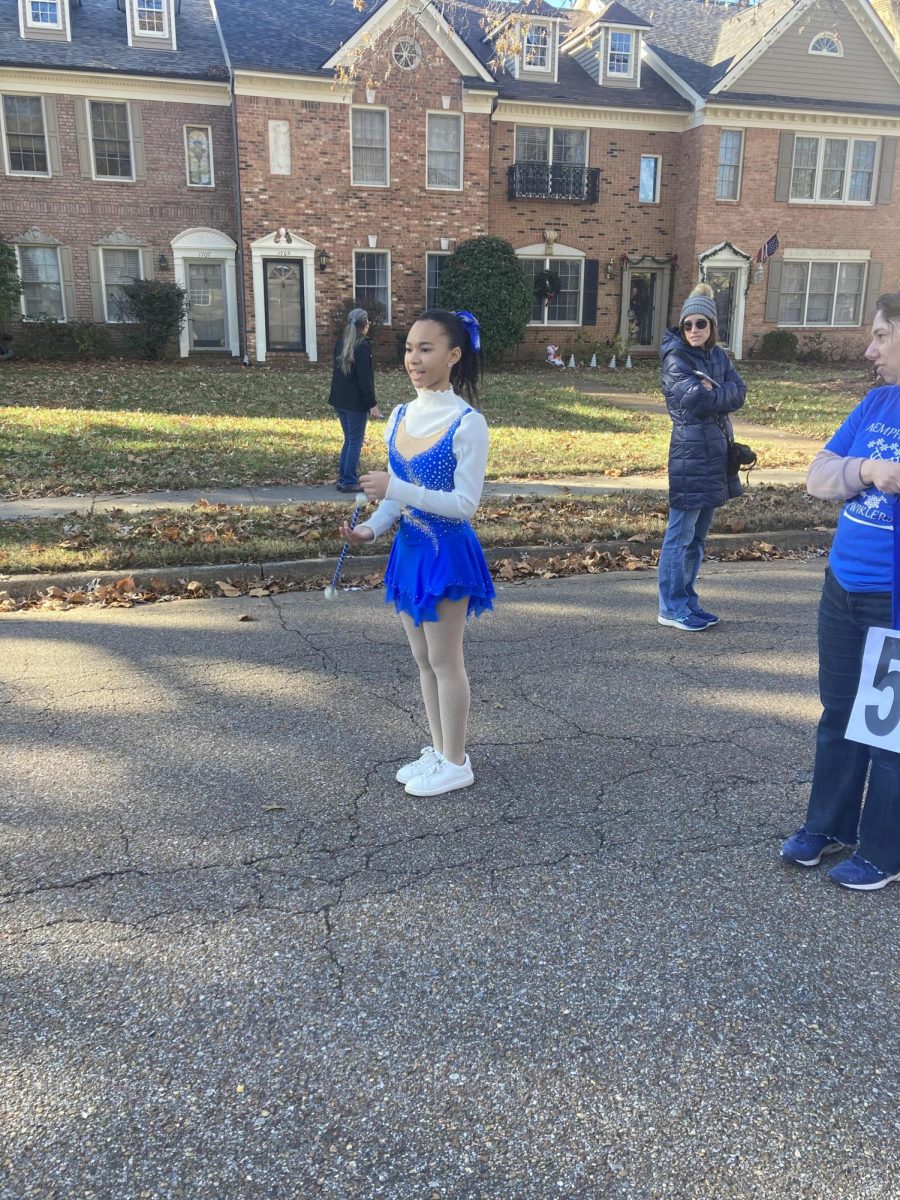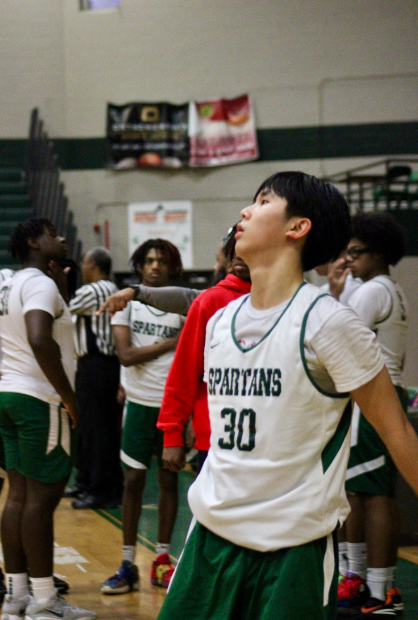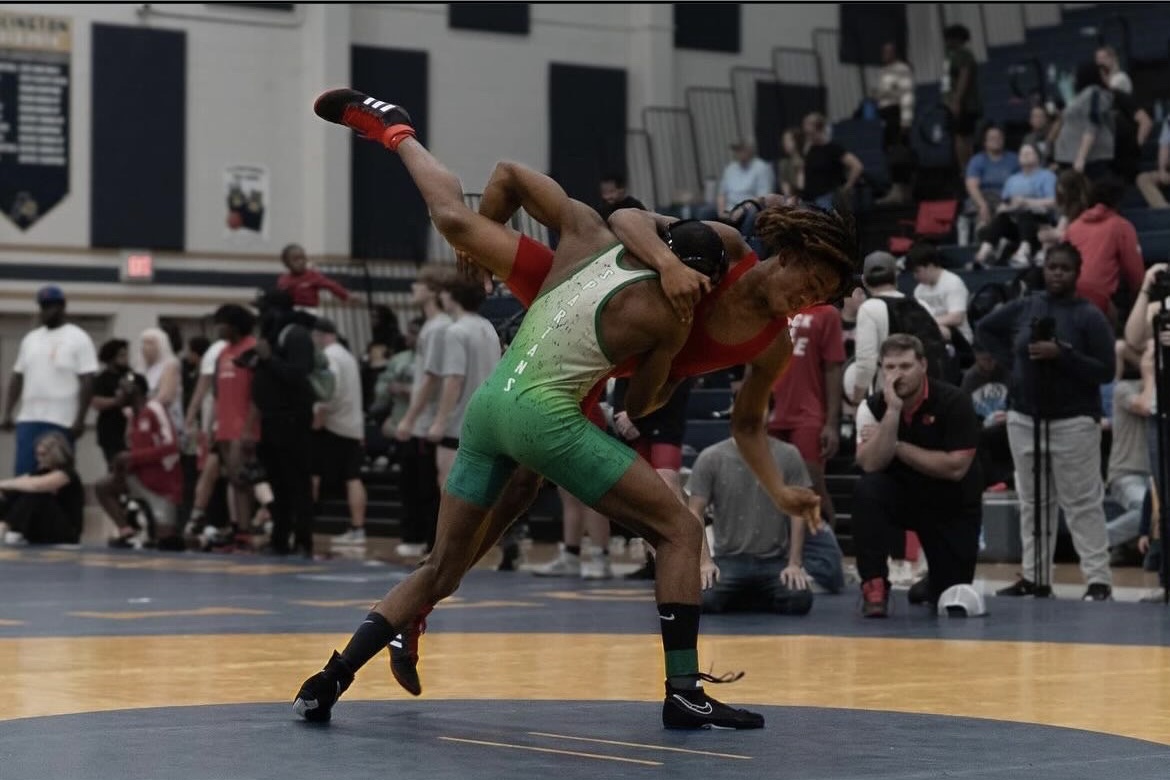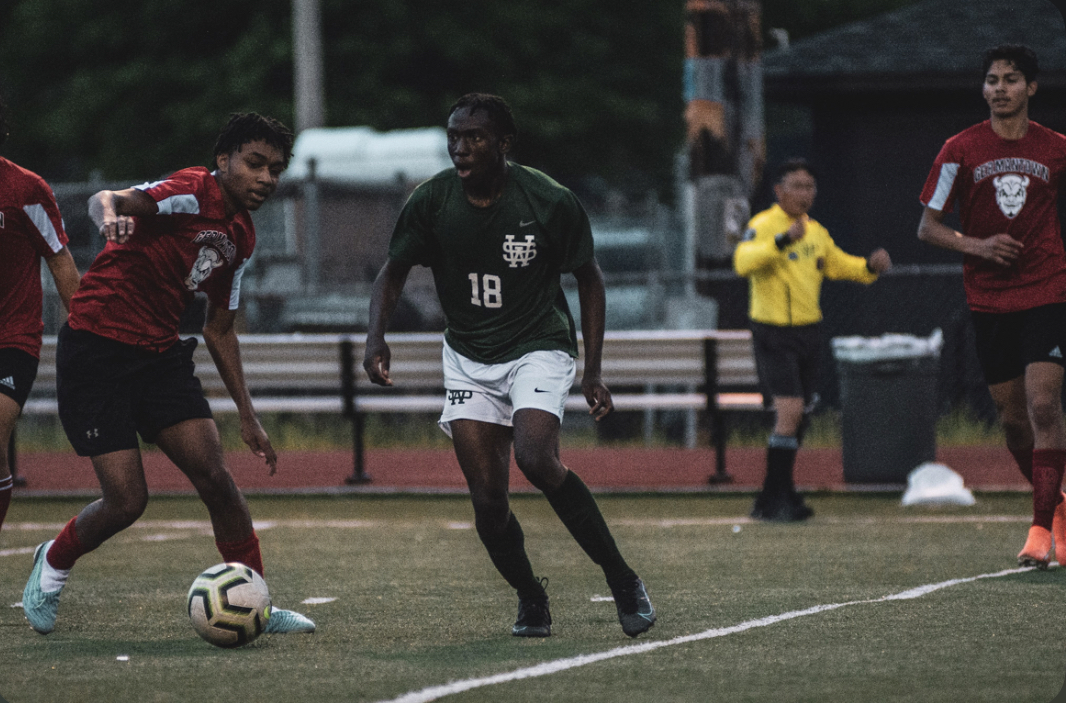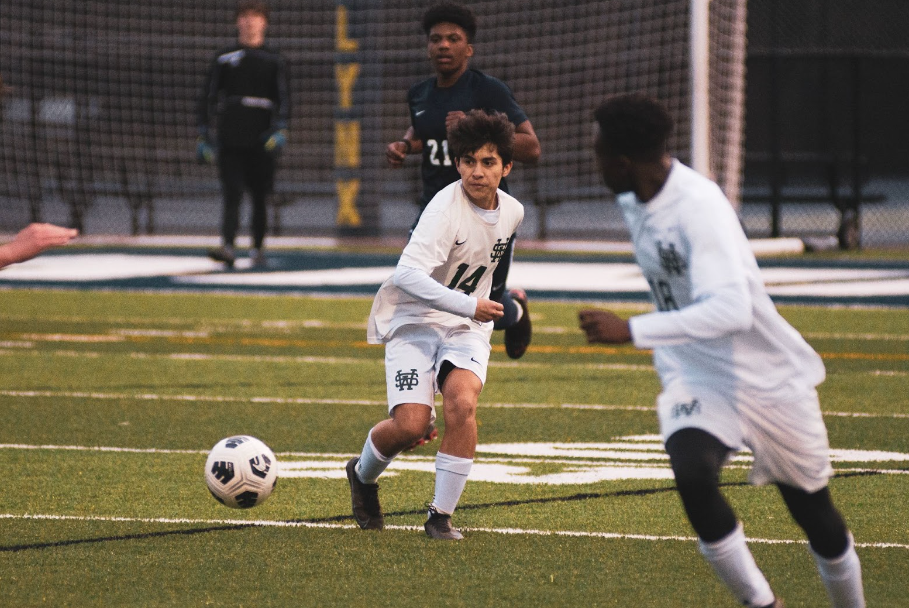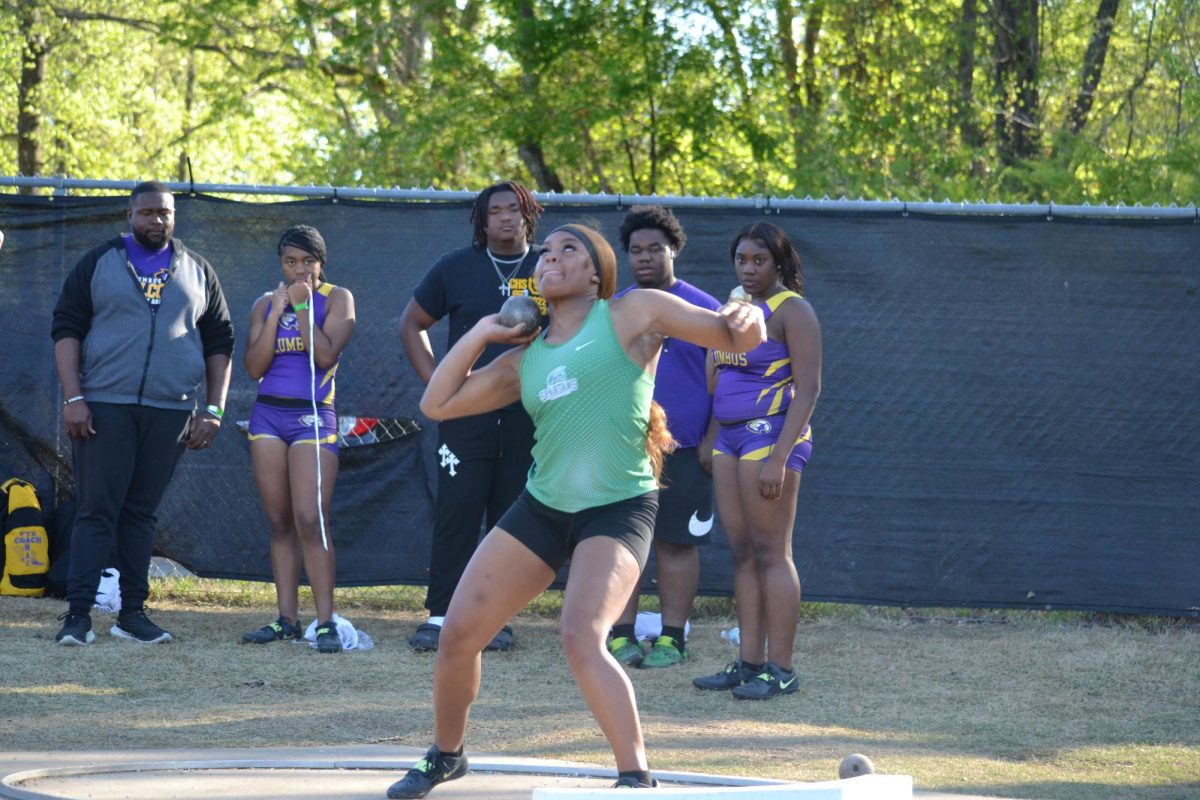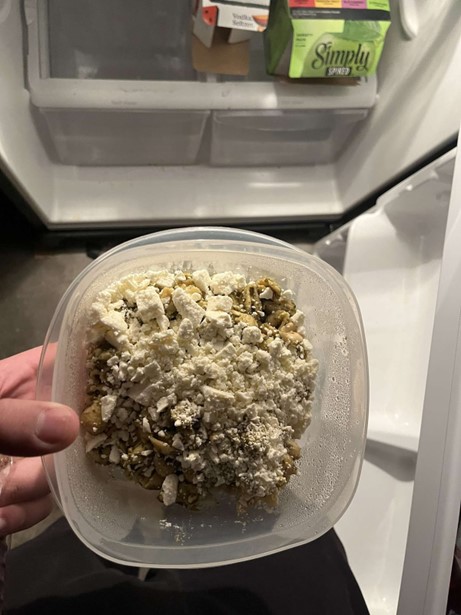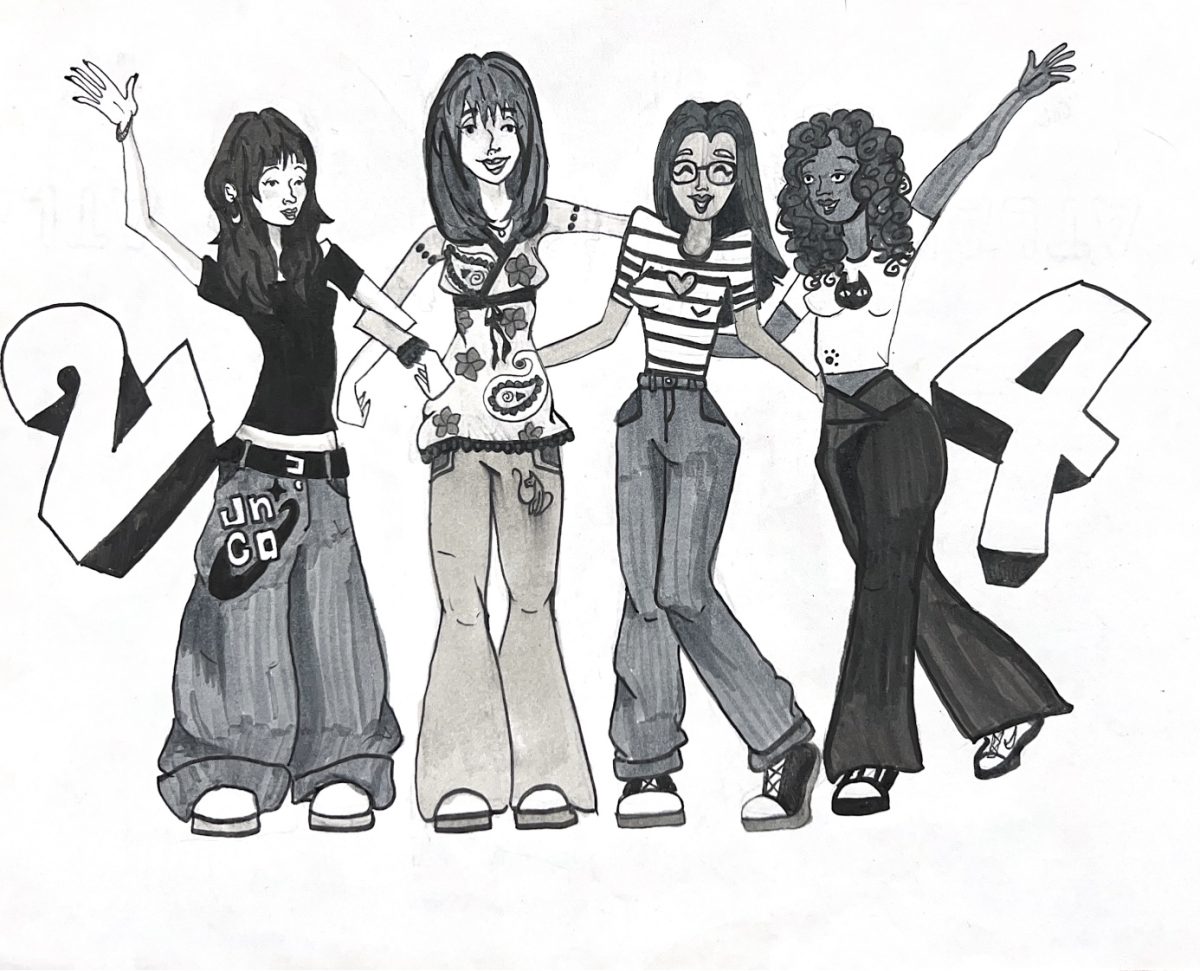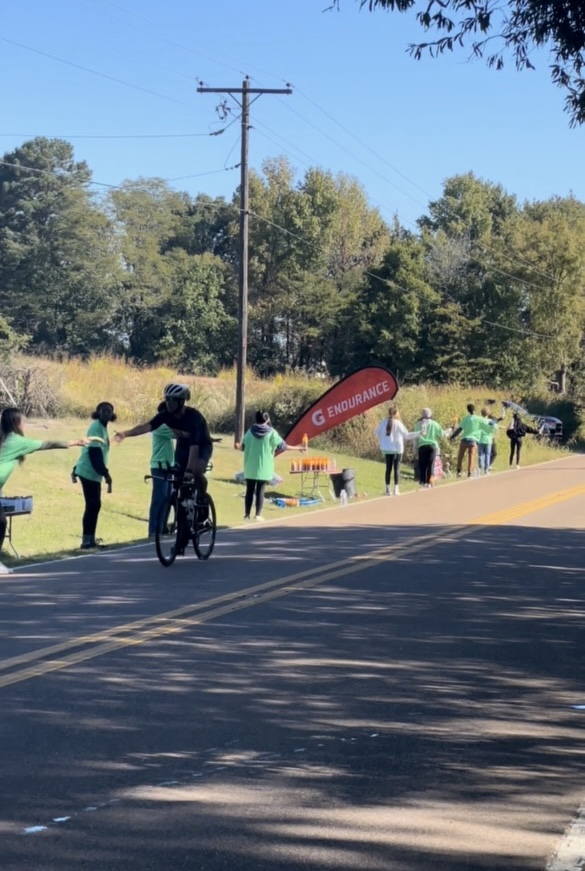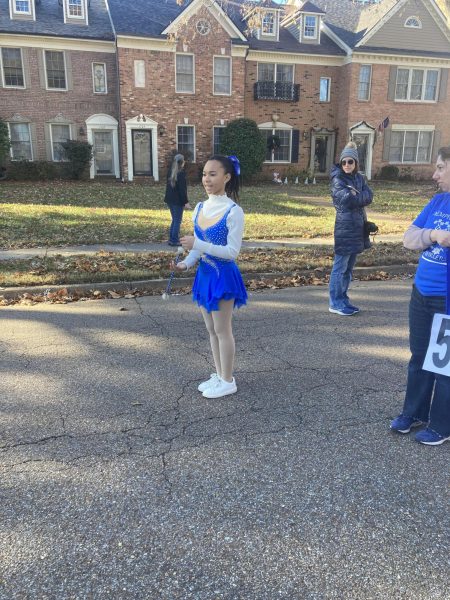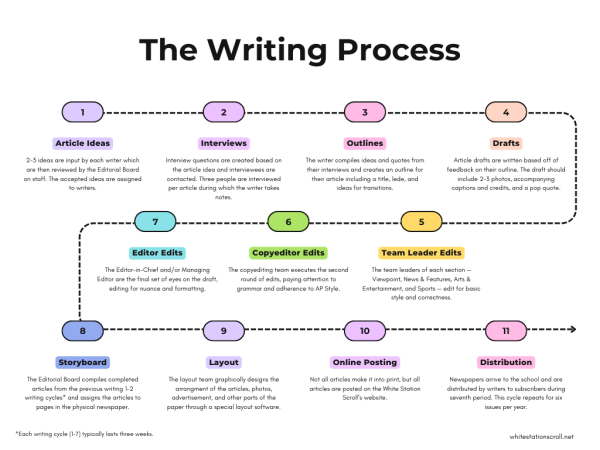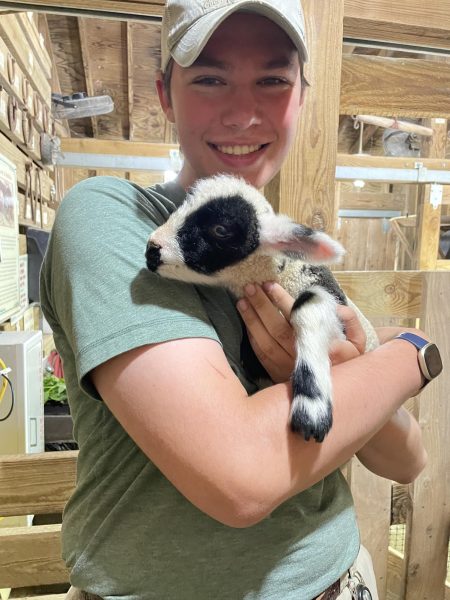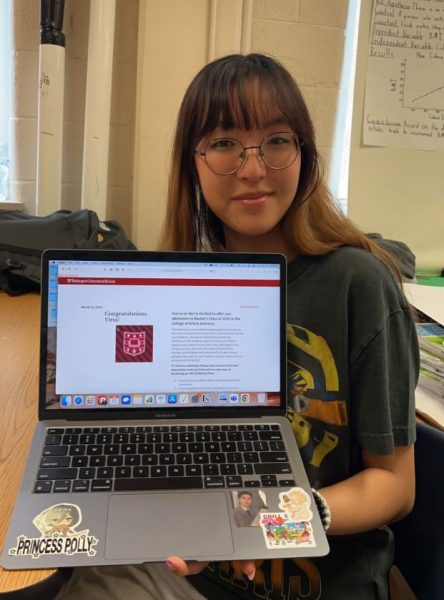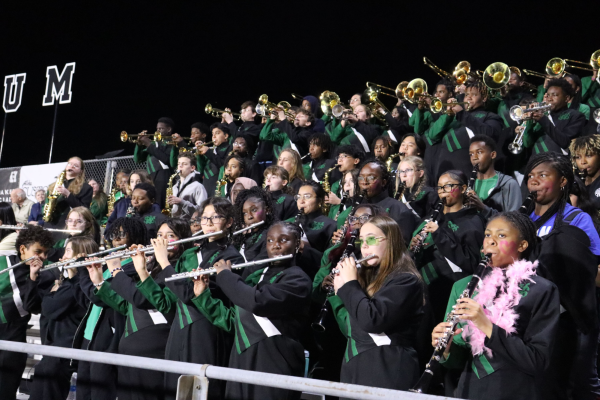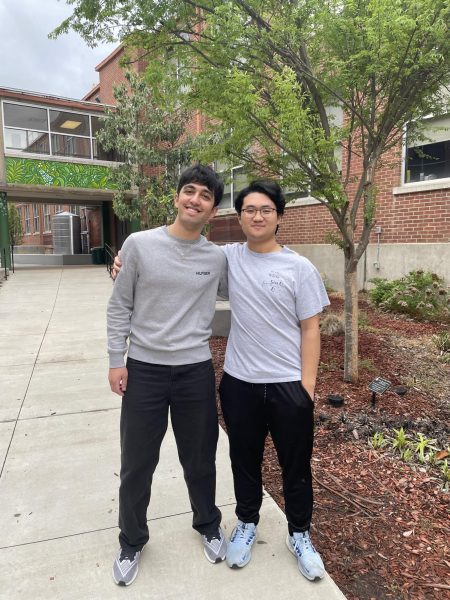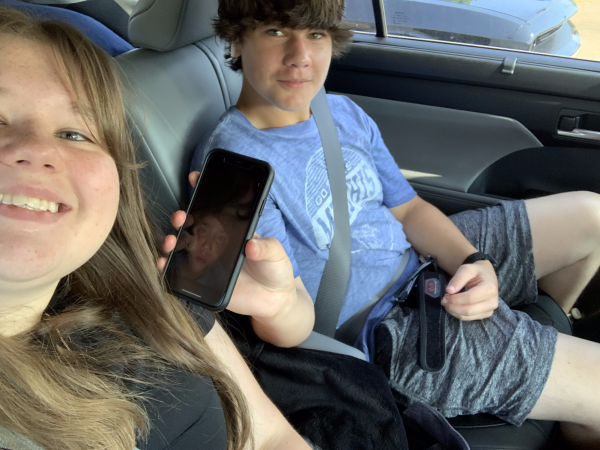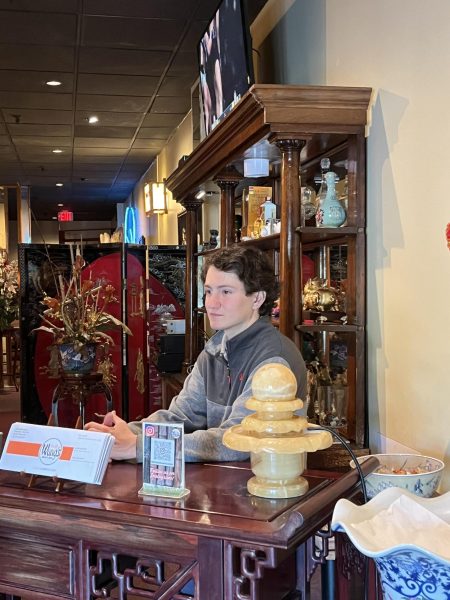IronMan 70.3 makes its way to Memphis
White Station Key Club members hand out food and water to cyclists for a quick endurance boost. Volunteers distributed supplies and cheered on more than 1,100 athletes as they raced through their station.
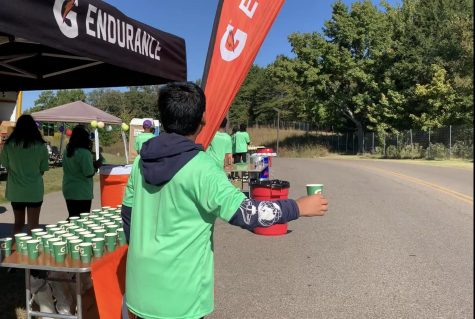
After swimming, biking and running 70.3 miles, athletes reach their final destination: the IronMan Triathlon finish line. This year, both the White Station Key Club and the Junior Reserve Officer Training Corps (JROTC) battalion led volunteer stations to help athletes push through the lengthy race.
“I think other students should become involved with the [volunteer events], because it feels good to know that you are doing something that is going to affect other people,” Jenny Nguyen (10) said. “You can make someone’s day, and it feels good knowing I helped the bikers.”
Key Club President Hannia Antunez (12) captained bike aid station two, while Battalion Commander Alexandra Shirley (12) was the captain of run aid station one. The tasks both volunteer groups had to carry out were similar: set up the station, hand out snacks and drinks, cheer on athletes and pack up the station after the last athlete raced through.
“All students should try to give back to the community regardless of being in NHS or [other organizations],” Shirley said. “I think everyone should get service hours, because volunteering really does teach you to serve others and if you have a club, it really builds comradery.”
The preparation for this event began early in May when captains had to claim their preferred spots. Even then, captains had to constantly communicate with other staff members and recruit dozens of volunteers.
“I was not supposed to be the captain of this area, I was just supposed to be a regular volunteer,” Shirley said. “But really soon before the race, I got an email from the volunteer director and she said she did not have a captain for this area, and I said I would volunteer since I was already in charge of JROTC people. Once I figured out I was going to be a captain, I had to work out a lot of the logistics … and just organize a lot of small things.”
While the event is described as high-paced and exciting, volunteers had to make a sacrifice: wake up around 4 or 5 a.m. to reach the remote stations in time to set up for the nearly seven hours of racing.
“I was first interested in the event because of the service hours, but after experiencing it, I totally recommend doing it,” Eduardo Torres (12) said. “Waking up at 4 a.m., driving to the middle of nowhere and getting that adrenaline rush of doing something new is such a cool experience.”
At first, the athletes slowly trickled past the volunteers, but as time passed, athletes in groups of 10 or more soon rushed past. The volunteers were separated into groups along the road according to their snacks or drink. Soon, a sense of friendly competition rose as volunteers bragged about how many items they could hand out successfully.
“On the way back [to the volunteer truck], we all had to carry the supplies and worked together as a team,” Shirley said. “In JROTC, we practice marching and singing cadences, so we marched on the way back and sang while we were marching. All the volunteers and athletes were looking at us like we were crazy, but it was just really fun because that’s what we do.”
Key Club had already participated in this event in prior years; however, this was the first year that JROTC was involved in the IronMan triathlon.
“I [was first interested, because I] heard that Key Club had received [funding] last year from the IronMan race to help with their program,” Shirley said. “We are always finding ways to fundraise for the JROTC military ball since we pay for that ourselves.”
The IronMan Foundation started the triathlon to create a charitable giveback for the surrounding communities. For Memphis, the race has been tied to the St. Jude Research Foundation. Though the event is serious, students like Torreswere able to create a game out of the volunteer process.
“My favorite part of the race was when people would grab my food,” Torres said. “Most of the racers wanted water and gatorade, so those stations were probably more fun, but when someone would scream ‘Banana, banana!’ I would get so excited. It was a fun experience.”
Your donation will support the student journalists of White Station High School. Your contribution will allow us to purchase equipment and cover our annual website hosting costs.


